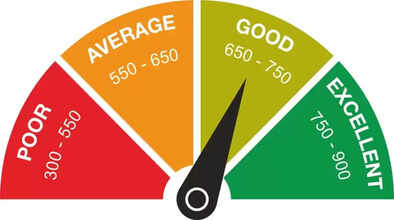CIBIL Score: CIBIL score will not deteriorate, RBI has made new rules in the interest of customers..

CIBIL Score: Whenever a consumer goes to the bank to get a loan or credit card, the CIBIL score is checked first. Now you do not need to worry about the CIBIL score (CIBIL Score new Rules). RBI has set many rules related to the CIBIL score in the interest of the customers. By following these rules, the CIBIL score of the customers will not be affected. RBI (RBI Guidelines) has instructed banks and credit information bureaus to strictly implement these rules.
RBI took action after receiving the complaint-
Many times, the CIBIL score (RBI rules for cibil score) also gets spoiled due to the mistake or omission of the banks. In such a situation, due to no fault of the customer himself, there is unnecessary trouble. When the RBI received such complaints regarding the CIBIL score, new rules related to the CIBIL score (how to improve cibil score) were set. Now, if there is a discrepancy in the CIBIL score at the level of the bank and credit bureau, then this problem will be resolved immediately.
1. Banks will give information about checking the CIBIL score-
According to the new rules related to CIBIL score by the Reserve Bank of India, banks will now have to inform the customer about checking the CIBIL score and tell them how to check the CIBIL score. All the credit information companies that decide the CIBIL score will also monitor whether the CIBIL score or credit report of a customer is checked by the bank or NBFC (non-banking finance companies), then the concerned customer should be informed about it by email or SMS.
2. Request will not be rejected without giving a reason-
If a customer applies for a loan (bank loan news) or credit in the bank, then his request cannot be rejected without informing him. If someone's request is rejected, then the reason for it will have to be given. It is necessary for the banks to send a list of such reasons to all the credit information companies every month.
3. Cannot be declared a defaulter without informing-
Now, if a loan holder or a credit card holder does not pay the EMI or bill, the bank declares him a defaulter. Now this step cannot be taken by the banks without informing the customer. Before declaring a loan defaulter, the banks will have to inform the customer about this along with the reason by sending a message or mail. According to RBI, banks can appoint nodal officers to solve the problems related to people's CIBIL score (RBI Rules for cibil score).
4. Time fixed for solving the problem-
RBI has now fixed a time for solving the problem related to the CIBIL score (cibil score new rules). The bank or credit information company will have to solve the customer's problem within the stipulated period of 30 days. For this, after the complaint is made by the customer, banks (bank rules on cibil score) will get 21 days, and the credit bureau will get 9 days. In case of delay, a fine of Rs 100 per day will have to be paid to the responsible institution.
5. Facility will be free for a full credit report-
Credit companies will share the information from the full credit report once a year. This facility will be given to the customers for free. According to the new rules of the RBI, credit companies can provide a link on their website for this. Through this link, customers will be able to know their CIBIL report and credit history, and can also decide whether to take a loan, etc., by looking at the CIBIL score.
6. Customers can complain here-
If there is a problem with the CIBIL score from the bank and Credit Information Bureau, then a complaint can be registered online by visiting the CIBIL website. Apart from this, the customer service number can also be contacted. If the problem is not resolved even in 30 days, then the bank customer can register his complaint with the Reserve Bank of India.
Disclaimer: This content has been sourced and edited from Hr Breaking. While we have made modifications for clarity and presentation, the original content belongs to its respective authors and website. We do not claim ownership of the content.

